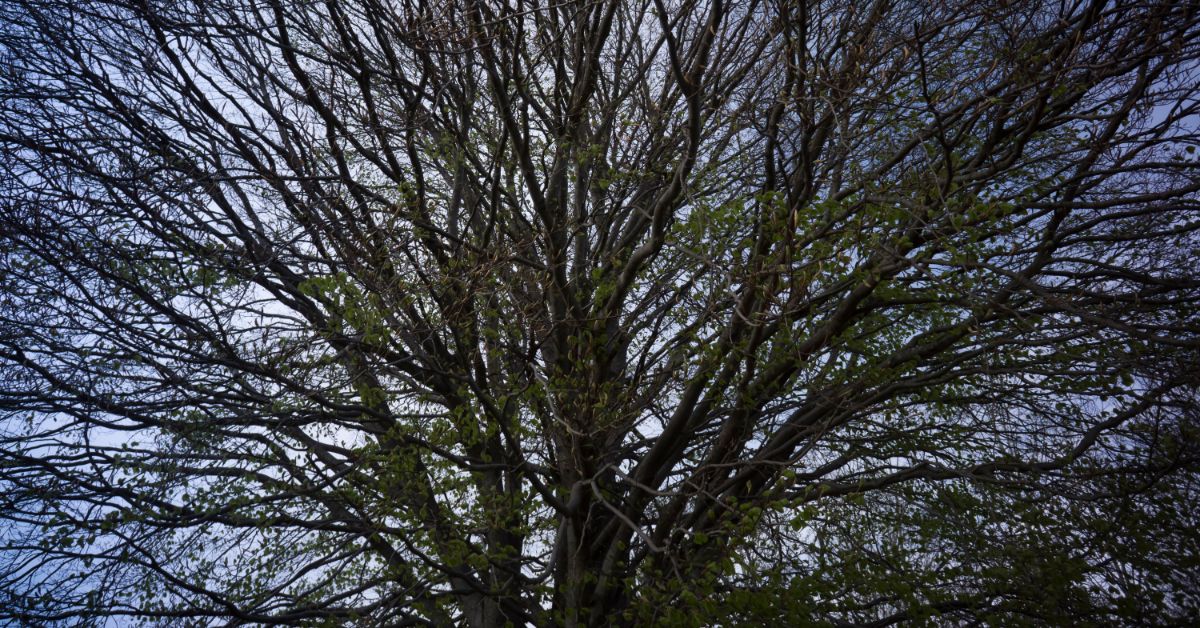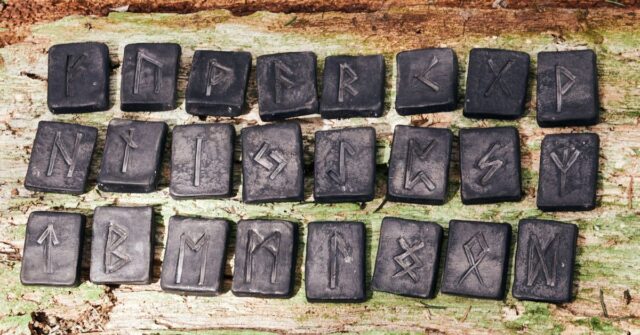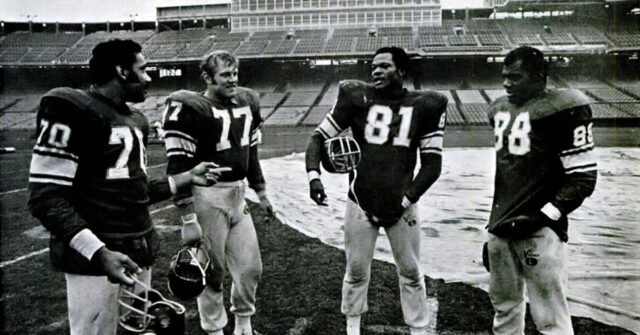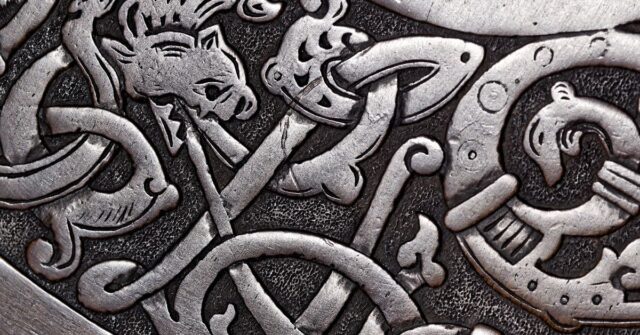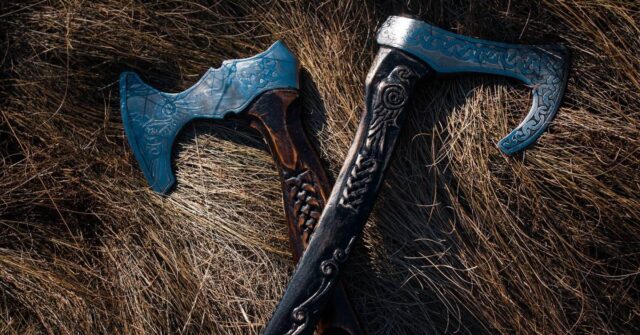The image of the Viking has captivated the imagination of people around the world, symbolizing adventure, exploration, and raw power.
But beyond the legends and myths, the descendants of these Norse warriors have woven their way into the fabric of modern societies.
This exploration delves into the lives and legacies of Viking descendants, revealing their cultural, genetic, and societal impacts in contemporary times.
Unveiling the Viking Legacy
The Viking legacy stretches across oceans and centuries. Known for their fearsome raids and explorations, Vikings left an indelible mark on history that can still be traced today.
This section looks at the origins of the Vikings and how their cultural and genetic legacy continues to live on.
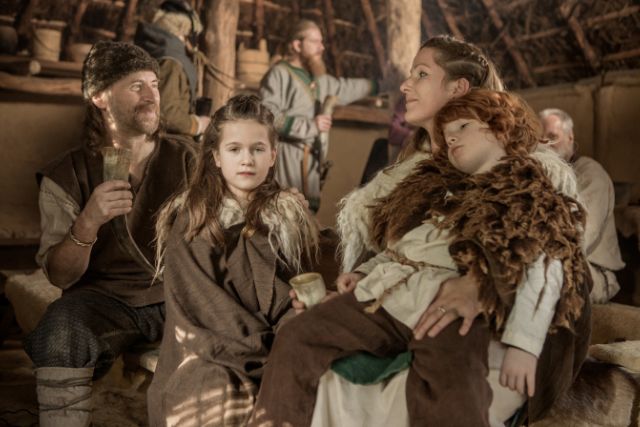

The History of Vikings: Warriors of the North
Vikings, originating from Scandinavia, were not just warriors but also traders, explorers, and settlers.
They embarked on voyages across Europe, Asia, and the Atlantic from the late 8th to early 11th centuries.
The historical records and archaeological findings give us a glimpse into their lives, society, and the expansiveness of their expeditions.
Defining Viking Descent: Genetics and Culture
Defining Viking descent involves more than just tracing a family tree. It encompasses genetic markers, cultural traditions, and oral histories that have been passed down through generations.
This complex tapestry is what links modern individuals to their Viking ancestors.
Viking Routes: The Spread Across Europe
The Vikings set sail on their longships, reaching the coasts of the British Isles, France, and even the distant shores of North America.
Their routes became the conduits for cultural exchange, trade, and sometimes conflict, influencing the genetic and cultural makeup of many populations along the way.
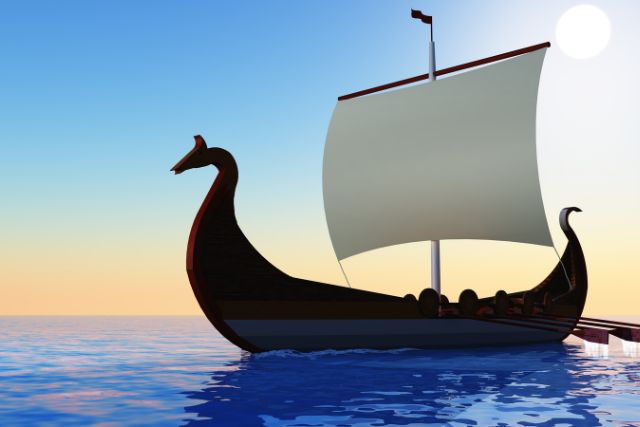

Tracing Viking Bloodlines
With advances in genetic testing, tracing one’s Viking bloodlines has become more accessible than ever.
DNA tests can reveal the fascinating history hidden within our genes, connecting us to the Vikings of the past.
Genetic Markers: Identifying Descendants
Specific genetic markers can indicate Viking ancestry.
These markers passed down through generations, can be found with a higher frequency in regions known for Viking settlements and raids, providing a biological link to the Norse explorers.
The Role of DNA Testing in Tracing Ancestry
DNA testing has revolutionized the way we understand our heritage.
By analyzing Y-chromosome and mitochondrial DNA, individuals can trace their lineage back to the Viking age, confirming ancestral ties that were once only part of family lore.
Geographical Distribution of Viking Descendants
The descendants of Vikings can be found far and wide, with a geographical distribution that reflects the vast reach of their ancestors’ travels.
This section explores where Viking descendants are most prevalent today and how they continue to influence these areas.
Scandinavia: The Heartland of the Vikings
Scandinavia remains the heartland of Viking culture and genetics.
Norway, Sweden, and Denmark have the highest concentration of Viking descendants, where the heritage is a point of national pride and celebrated through various cultural expressions.
The British Isles: A Mixture of Bloodlines
In the British Isles, the Viking genetic imprint is intermixed with those of earlier and later populations.
This rich tapestry is evident in the genetic makeup of the people, place names, and enduring cultural practices that trace back to the Viking age.
Normandy: From Vikings to Normans
The region of Normandy in France owes its name to the Norsemen who settled there.
The descendants of these Vikings played a significant role in European history, most notably through the Norman conquest of England in 1066.
Eastern Expansion: The Varangians and Beyond
The Varangians, as the Eastern Vikings were known, left their mark as far as the Byzantine Empire and the coasts of the Black Sea.
Their genetic legacy is less documented but nonetheless present in the populations of Eastern Europe and Russia.
Cultural Impact and Heritage
The Vikings are not just historical figures; their cultural impact has persisted through the centuries, influencing art, literature, and even modern media.
Their heritage is celebrated and preserved in numerous ways, reflecting the pride of their descendants.
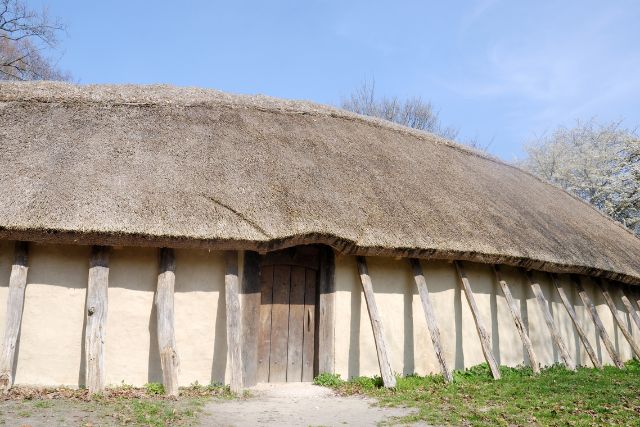

Preserving Viking Heritage in Modern Societies
In Scandinavia and beyond, efforts to preserve Viking heritage are robust. Museums, educational programs, and archaeological sites offer a window into the Viking world, allowing modern descendants and enthusiasts alike to connect with their history.
Viking Traditions in Contemporary Culture
Viking traditions, from mythology to craftsmanship, continue to influence contemporary culture.
This includes modern adaptations of Norse myths, the revival of Viking-style craftsmanship, and the celebration of traditional Viking festivals.
Festivals and Reenactments: Celebrating Viking History
Viking festivals and reenactments are popular events that draw participants and spectators from around the globe.
These gatherings are not only entertaining but also serve as educational platforms to disseminate knowledge about Viking history and lifestyle.
Modern Vikings: Identity and Influence
Today’s descendants of Vikings carry their identity with pride, and this identity influences various aspects of their lives.
From fashion to lifestyle choices, the Viking spirit is alive and well in the modern era.
The Viking Brand: Symbols and Mythology in Today’s World
The symbols and mythology of the Vikings have been adopted by many brands, signifying strength and resilience.
This branding can be seen in products, literature, and even in the entertainment industry, where Viking themes are prevalent.


Living Like a Viking: Modern Practices and Lifestyles
Some modern descendants of Vikings choose to incorporate aspects of the Viking lifestyle into their daily routines, from traditional diets to participation in martial arts that echo ancient Norse combat techniques.
Influential Personalities of Viking Descent
There are numerous influential personalities in various fields who claim Viking descent.
Their stories and achievements add a modern chapter to the Viking narrative, showing that the legacy of the Vikings extends far beyond the historical texts.
The Economic and Political Influence of Viking Descendants
Descendants of Vikings have made their mark not just culturally but also economically and politically.
Their influence can be seen in the governance and business practices of nations where they settled.
Political Power and Governance: The Legacy in Leadership
Some of the governing principles and legal practices in Scandinavian countries and regions influenced by the Vikings can trace their roots back to Norse law and societal structures established during the Viking Age.
Business and Innovation: Viking Ethos in Entrepreneurship
The Viking ethos of exploration and risk-taking is mirrored in the entrepreneurial spirit of their descendants.
This has led to innovation and strong business practices in regions with a significant Viking heritage.
Challenges and Controversies
While the Viking heritage is a source of pride for many, it also comes with its set of challenges and controversies, from stereotypes to misappropriations of Viking symbols.
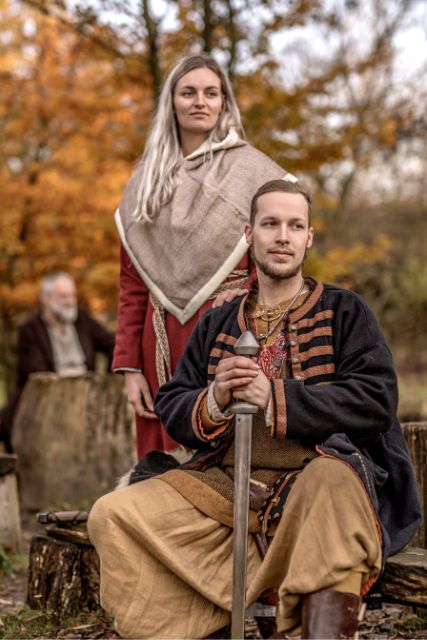

Debunking Myths: The Realities of Viking Descent
Popular culture has created many myths about the Vikings. Scholars and historians work to debunk these, presenting a more nuanced and accurate picture of Viking life and lineage.
Issues of Heritage and Identity in the 21st Century
In the 21st century, issues of heritage and identity are complex, especially with the commercialization of the Viking image.
This section discusses the implications of these issues for those who identify with Viking ancestry.
Connecting with Your Viking Roots
For those interested in exploring their Viking roots, there are many resources available. From genetic testing to cultural immersion, there are numerous ways to connect with one’s Viking heritage.
Online forums, cultural societies, and educational resources provide ample opportunities for Viking enthusiasts to connect, share knowledge, and celebrate their heritage.


Looking Forward: The Future of Viking Legacy
The Viking legacy is not confined to the past; it continues to evolve. As we look to the future, the influence of Viking ancestry will undoubtedly persist in new and unexpected ways.
The Role of Technology in Preserving History
Technological advances are transforming how we preserve and understand history.
From digitizing ancient texts to DNA analysis, technology is unlocking the secrets of the Viking Age for future generations.
The Next Generation: Viking Descent in the Future
The next generation of those of Viking descent will carry forward a legacy that is over a thousand years old.
How they choose to interpret and integrate this heritage into their lives will shape the future of the Viking legacy.

